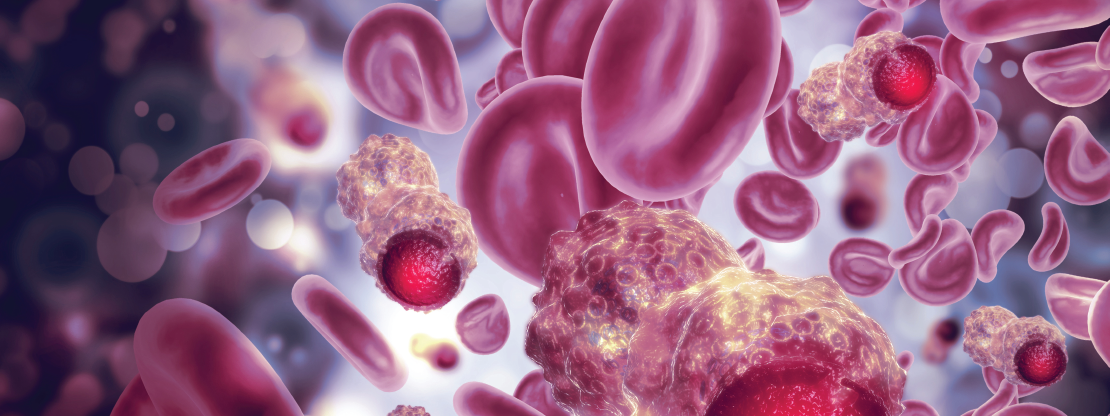
VAI–SU2C Epigenetics Dream Team
The Van Andel Institute–Stand Up To Cancer© (SU2C) Epigenetics Dream Team was established in 2014 and builds on the foundations laid by the first iteration of the SU2C Epigenetics Dream Team, which was founded in 2009. Today’s team is based at Van Andel Institute in Grand Rapids, Michigan, and is led by the Institute’s Chief Scientific Officer Peter A. Jones, Ph.D., D.Sc. (hon), and Stephen Baylin, M.D., VAI professor and co-head of Cancer Biology at Johns Hopkins University’s Sidney Kimmel Comprehensive Cancer Center. The team includes leading scientists and clinicians with vast experience in translating basic science and promising therapies from the lab to the clinic.
Stand Up To Cancer® (SU2C) funds groundbreaking cancer research to detect, intercept and treat cancers with the aspiration to cure all patients. At the forefront of cutting-edge cancer research, SU2C facilitates collaborations that move new therapies quickly from the laboratory to the patient. Connecting the top minds in science, SU2C has funded 230 grants to over 3,000 scientists in 13 countries, helping hundreds of thousands of people impacted by cancer thrive. An integral part of SU2C’s identity is its relationship with the entertainment community, which helps raise awareness and builds broad public support for SU2C’s mission.
With a strategic focus on early detection and interception, SU2C’s bold goal is to reduce mortality from cancer by 25 percent in the next five years through strategic funding of immunotherapies that can wipe out cancer, vaccines that prevent or treat cancer, and artificial intelligence and large language models methods that predict and diagnose cancer earlier than ever.
Rigorous and objective scientific oversight and review is provided by SU2C’s Scientific Advisory Committee, which comprises respected experts in cancer research and treatment.
What are epigenetics? Why study it?
If the genetic code is a musical score, then epigenetics represents the various ways in which it may or may not be played. Although the actual notes on the sheet music do not change, the choice of tempo, instrument, volume and even the omission of parts of the piece alters what the listener hears. In much the same way, epigenetic modifications do not change the DNA sequence — which is virtually identical in all cells in a person’s body — rather, they regulate how the DNA is expressed. Epigenetics control how the DNA is used, switching particular genes “on” or “off” to determine cell type and function. In the majority of human cancers, there are errors in the genome and the epigenome and these errors can contribute to cancer development, growth and treatment resistance. Identifying and understanding how these errors arise and how to correct them holds great promise for developing new, more effective therapies.
Principal Investigator
Peter A. Jones, Ph.D., D.Sc. (hon) (VAI–SU2C Epigenetics Dream Team co-leader)
Chief Scientific Officer
Van Andel Institute
Investigators
Galen Hostetter, M.D.
Director of Pathology, Pathology and Biorepository Core
Van Andel Institute
Connie Krawczyk, Ph.D.
Associate Professor, Department of Metabolism and Nutritional Programming
Van Andel Institute
Peter Laird, Ph.D.
Professor, Department of Epigenetics
Van Andel Institute
Hui Shen, Ph.D.
Professor, Department of Epigenetics
Van Andel Institute
Scott Rothbart, Ph.D.
Professor, Department of Epigenetics
Van Andel Institute
Principal Investigator
Stephen Baylin, M.D. (VAI–SU2C Epigenetics Dream Team co-leader)
Co-head of Cancer Biology; Virginia and D.K. Ludwig Professor for Cancer Research, Sidney Kimmel Comprehensive Cancer Center, Johns Hopkins University
Professor, Van Andel Institute
Investigators
Nilofer Azad, M.D.
Professor of Oncology
Sidney Kimmel Comprehensive Cancer Center, Johns Hopkins University
Member, National Cancer Advisory Board
Julie R. Brahmer, M.D.
Interim Director
Sidney Kimmel Comprehensive Cancer Center, Johns Hopkins University
Betsy Plimack, M.S., M.D.
Chief, Division of Genitourinary Medical Oncology
Deputy Director, Fox Chase Cancer Center
Cindy Zahnow, M.S., Ph.D.
Associate Professor of Oncology
Johns Hopkins University
Young Investigator
Michael Topper, Ph.D.
Instructor
Johns Hopkins University
CORIELL INSTITUTE FOR MEDICAL RESEARCH
Principal Investigator
Jean-Pierre Issa, M.D.
President and CEO
Coriell Institute for Medical Research
Principal Investigator
Ken Nephew, Ph.D.
Professor of Cellular and Integrative Physiology
Indiana University School of Medicine and Simon Cancer Center
Investigator
Kathy D. Miller, M.D.
Ballve Lanterno Professor of Oncology, Indiana University School of Medicine
Associate Director of Clinical Research, Indiana University Melvin and Bren Simon Cancer Center
MEMORIAL SLOAN KETTERING CANCER CENTER
Principal Investigator
Charles Rudin, M.D., Ph.D.
Chief — Thoracic Oncology Service
Memorial Sloan Kettering Cancer Center
Investigators
Andrea Cercek, M.D.
Medical Oncologist
Memorial Sloan Kettering Cancer Center
UNIVERSITY OF COPENHAGEN/RIGSHOSPITALET
Principal Investigator
Kirsten Grønbæk, M.D., D.M.Sc.
Professor
Chief Physician
University of Copenhagen/Rigshospitalet
Young Investigator
Andreas Due Ørskov
M.D./Ph.D. Student
University of Copenhagen/Rigshospitalet
Principal Investigators
Feyruz Rassool, M.D.
Professor
University of Maryland School of Medicine
Maria Baer, M.D.
Professor of Medicine, University of Maryland School of Medicine
Director of Hematologic Malignancies and Co-leader of the Experimental Therapeutics Program, University of Maryland Marlene and Stewart Greenebaum Cancer Center
Investigators
UNIVERSITY OF SOUTHERN CALIFORNIA
Principal Investigator
Anthony El-Khoueiry, M.D.
Associate Professor of Clinical Medicine
Associate Director of Clinical Research
University of Southern California
Investigators
Casey O’Connell, M.D.
Associate Professor of Clinical Medicine
University of Southern California
COLLABORATING INVESTIGATORS
Nita Ahuja, M.D., FACS
Chair, Department of Surgery
Yale School of Medicine
Susan Clark, Ph.D., FAA
NHRMC Senior Principal Research Fellow
Head, Division of Genomics and Epigenomics
Head, Epigenetics Research Laboratory
Garvan Institute of Medical Research
Sine Reker Hadrup, Ph.D., M.Sc., B.Sc.
Professor of Immunology and Vaccinology
Technical University of Denmark
PATIENT ADVOCATES
Rick Bangs, MBA, PMP
Beth Flory, MBA
Pat Gavin, R.Ph.
In memoriam
Ongoing VAI–SU2C Epigenetics Dream Team Trials
Below is information about ongoing VAI-SU2C Epigenetics Dream Team trials. Please note, although Van Andel Institute is involved in clinical trials, the Institute does not treat patients nor are trials conducted onsite. Information about additional clinical trials beyond those conducted by VAI-SU2C Epigenetic Dream Team members can be found at clinicaltrials.su2c.org.
What is being tested?
To investigate if oral vitamin C may change the biology of low-risk myeloid malignancies; i.e., clonal cytopenia of undetermined significance (CCUS), low-risk myelodysplastic syndrome (MDS), and chronic myelomonocytic leukemia (CMML)-0/1 by reversing some of the epigenetic changes characteristic of these disease entities.
Trial details
Trial name: Epigenetics, Vitamin C, and Abnormal Blood Cell Formation – Vitamin C in Patients With Low-Risk Myeloid Malignancies (EVITA)
ClinicalTrials.gov number: NCT03682029
Status: Enrollment closed
Estimated Enrollment: 109
Trial locations:
- Rigshospitalet, Denmark
- University of Southern California
- Imperial College London
- Herlev Hospital
- Aalborg University Hospital
- Odense University Hospital
- Zealand University Hospital
For a list of inclusion and exclusion criteria and contact information for individual trial sites, please visit clinicaltrials.gov here.
What is being tested?
To investigate if oral vitamin C supplementation to azacitidine, compared with azacitidine + placebo, can increase the effectiveness of epigenetic therapy in patients with higher-risk myeloid malignancies, who are not candidates for allogeneic hematopoietic stem cell transplantation
Trial details
Trial name: Combining Active and Passive DNA Hypomethylation: A Multicentre, Randomized, Placebo-Controlled Phase II Study of the Efficacy and Safety of Oral Vitamin C in Combination With Azacitidine in Higher-Risk MDS, CMML-2 and Low-Blast Count AML
ClinicalTrials.gov number: NCT03999723
Status: Enrolling
Estimated Enrollment: 127 of 196
Trial locations:
- Rigshospitalet, Denmark
- Karolinska University Hospital
- Skane University Hospital
- Sahlgrenska University Hospital, Sweden
- Oslo University Hospital
- Helsinki University
- Royal Sussex County Hospital
- Imperial College London
- Zealand University Hospital
- Aalborg University Hospital
- Odense University Hospital
- The Leeds Teaching Hospitals NHS Trust
- Aarhus University Hospital
For a list of inclusion and exclusion criteria and contact information for individual trial sites, please visit clinicaltrials.gov here.
Currently, few treatment options exist for these aggressive cancers, a problem that contributes to their overall poor prognosis.
What is being tested?
This trial will investigate the novel combination of the immunotherapy medication durvalumab (AstraZeneca) and the epigenetic medication guadecitabine (Astex Pharmaceuticals). Laboratory research indicates that this combination can thwart cancer’s ability to hide from the body’s natural defenses while also enhancing the immune system’s ability to seek and destroy tumor cells.
Trial details
Trial name: Guadecitabine and durvalumab in treating patients with advanced liver, pancreatic, bile duct or gallbladder cancer
ClinicalTrials.gov identifier: NCT03257761
Status: Enrollment closed
Estimated enrollment: 54
Sites:
- Johns Hopkins University Sidney Kimmel Comprehensive Cancer Center in Baltimore, Maryland
- University of Southern California in Los Angeles, California
- Hoag Memorial Hospital Presbyterian in Newport Beach, California
Industry partners: AstraZeneca and Astex Pharmaceuticals
From a list of inclusion and exclusion criteria and contact information for individual trial sites, please visit clinicaltrials.gov here.
Triple-negative breast cancer (TNBC) accounts for about 15% of breast cancers. Chemotherapy remains the mainstay of treatment with no targeted agents available.
What is being tested?
The purpose of this study is to test the safety of a combination of two drugs, ASTX727 and talazoparib, and whether it may help boost your immune system to stop or reverse the growth of tumors
Trial Details
Trial name: Study of ASTX727 Plus Talazoparib in Patients With Triple Negative or Hormone Resistant/HER2-negative Metastatic Breast Cancer
ClinicalTrials.gov identifier: NCT04134884
Status: Enrolling
Estimated enrollment: 32
Sites:
- Indiana University Melvin and Bren Simon Cancer Center (enrolling)
- Wake Forest Baptist Medical Center (enrolling)
Industry partners: Astex Pharmaceuticals and Pfizer
From a list of inclusion and exclusion criteria and contact information for individual trial sites, please visit clinicaltrials.gov here.
Completed Clinical Trials
The following trials have been completed.
An estimated 13,000 people in the U.S. are diagnosed every year with MDS and an additional 1,100 are diagnosed with CMML. Both conditions are incurable with current drugs, and both can progress to acute myeloid leukemia (AML), a lethal blood cancer that accounts for more than 10,000 deaths every year.
What is being tested?
The trial studies the combination of an investigational epigenetic drug called guadecitabine with atezolizumab, a cancer immunotherapy medicine. Laboratory results show these drugs synergize to help the body’s immune system recognize and destroy cancer.
Trial details
Trial name: Guadecitabine and atezolizumab in treating patients with advance myelodysplastic syndrome or chronic myelomonocytic leukemia that is refractory or relapsed
ClinicalTrials.gov number: NCT02935361
Status: Recruiting (please see location specific information below)
Trial locations:
- University of Southern California
- University of Maryland, Baltimore, Maryland
- Cancer & Hematology Centers of West Michigan
Industry partners: Astex Pharmaceuticals and Genentech, a member of the Roche Group
For a list of inclusion and exclusion criteria and contact information for individual trial sites, please visit clinicaltrials.gov here.
Lung cancer is a major public health problem and claims more lives annually than any other type of cancer. Its most common subtype is non-small cell lung cancer, which accounts for over 80 percent of the estimated 290,000 cases of lung cancer expected to be diagnosed in the U.S. in 2017.
What is being tested?
This trial combines two epigenetic drugs — guadecitabine (Astex Pharmaceuticals) and mocetinostat (Mirati Therapeutics) — with the immunotherapy drug pembrolizumab (Keytruda®; Merck) to make cancer cells more visible to attack by the immune system’s natural defenses.
Trial details
Trial name: Phase I/Ib study of combined pembrolizumab plus guadecitabine and mocetinostat for patients with advanced NSCLC (supported by the SU2C Catalyst ®)
ClinicalTrials.gov identifier: NCT03220477
Status: Closed
Estimated enrollment: 33
Trial locations:
- Memorial Sloan Kettering Cancer Center in New York, New York
- Fox Chase Cancer Center in Philadelphia, Pennsylvania
- Johns Hopkins University Sidney Kimmel Comprehensive Cancer Center and Bloomberg-Kimmel Institute for Cancer Immunotherapy in Baltimore, Maryland
Industry partners: Merck & Co., Inc., Kenilworth, NJ, USA (known as MSD outside the U.S. and Canada) through its subsidiary Merck Sharp & Dohme, Corp.; Mirati Therapeutics; Astex Pharmaceuticals
For a list of inclusion and exclusion criteria and contact information for individual trial sites, please visit clinicaltrials.gov here.
Metastatic colorectal cancer is the second leading cause of cancer death in men and women combined in the U.S.
What was tested?
Resistance is a common problem in cancer treatment. It occurs when a person’s cancer stops responding to existing medications and therapeutic strategies. This trial investigated whether combining an epigenetic drug called guadecitabine with a standard treatment, irinotecan, can reverse resistance to irinotecan.
Trial details
Trial name: Phase I study of SGI-110 with irinotecan followed by randomized phase II study of SGI-110 with irinotecan versus regorafenib or TAS-102 in previously treated metastatic colorectal cancer
ClinicalTrials.gov number: NCT01896856
Status: Closed to enrollment
Trial locations:
- Sidney Kimmel Comprehensive Cancer Center, Baltimore, Maryland
- University of Southern California, Los Angeles, California
- Memorial Sloan Kettering Cancer Center, New York, New York
- VU University Medical Center, Amsterdam, The Netherlands
Industry partner: Astex Pharmaceuticals, Inc.
For more information, please visit clinicaltrials.gov here.
AML is an aggressive cancer that begins as abnormal blood cells in the bone marrow, and can spread throughout the circulatory system and beyond. Almost 20,000 people in the U.S. are diagnosed with AML each year. Long-term survival with AML is poor and treatment approaches have remained largely unchanged for decades.
What was tested?
The trial paired an investigational drug, talazoparib, with decitabine, an epigenetic drug that is already approved for use in myelodysplastic syndrome, a disease that often precedes AML. Preclinical studies show the combining the drugs may maximize their ability to kill cancer cells.
Trial Details
Trial name: Decitabine and talazoparib in untreated AML and R/R AML
ClinicalTrials.gov number: NCT02878785
Status: Closed to enrollment
Trial locations:
- University of Maryland Greenebaum Comprehensive Cancer Center, Baltimore, Maryland
- University of Southern California
For more information, please visit clinicaltrials.gov here.
Related Publications
Baer MR, Kogan, AA, Bentzen SM, Mi T, Lapidus RG, Duong VH, Emadi A, Niyongere S, O’Connell CL, Youngblood BA, Baylin SB, Rassool, RV. 2022. Phase I clinical trial of DNA methyltransferase inhibitor decitabine and PARP inhibitor talazoparib combination therapy in relapsed/refractory acute myeloid leukemia. Clin Cancer Res 28(7):1313-1322.
Bladder cancer is the sixth most common type of cancer. An estimated 79,000 people are expected to be diagnosed in the U.S. alone during 2017.
What was tested?
This trial investigateed whether guadecitabine (Astex Pharmaceuticals) can epigenetically reprogram tumors, reversing the resistance of bladder cancers to the immunotherapy drug atezolizumab (Tecentriq®; Genentech).
Trial details
Trial name: Overcoming atezolizumab resistance with epigenetic therapy in urothelial cancer (supported by the SU2C Catalyst®)
ClinicalTrials.gov identifier: NCT03179943
Status: Closed to enrollment
Estimated enrollment: 21 patients
Sites:
- Fox Chase Cancer Center in Philadelphia, Pennsylvania
- University of Southern California in Los Angeles, California
- Johns Hopkins University Sidney Kimmel Comprehensive Cancer Center in Baltimore, Maryland
Industry partners: Genentech, a member of the Roche Group; and Astex Pharmaceuticals
For more information, please visit clinicaltrials.gov here.
Latest from Vai
Learn More
Making an impact in the real-world: Five things to know about the Van Andel Institute–Stand Up To Cancer Epigenetics Dream Team

Combining two cancer medications may increase survival in relapsed myelodysplastic syndrome, lays groundwork for future cancer therapies

A year — and a quarter century — in review
Baer MR, Kogan, AA, Bentzen SM, Mi T, Lapidus RG, Duong VH, Emadi A, Niyongere S, O’Connell CL, Youngblood BA, Baylin SB, Rassool, RV. 2022. Phase I clinical trial of DNA methyltransferase inhibitor decitabine and PARP inhibitor talazoparib combination therapy in relapsed/refractory acute myeloid leukemia. Clin Cancer Res 28(7):1313-1322.
Topper MJ, Vaz M, Marrone KA, Brahmer JR, Baylin SB. 2020. The emerging role of epigenetic therapeutics in immuno-oncology. Nat Rev Clin Oncol 17(2):75–90.
Achinger-Kawecka J, Valdes-Mora F, Luu PL, et al. 2020. Epigenetic reprogramming at estrogen-receptor binding sites alters 3D chromatin landscape in endocrine-resistant breast cancer. Nat Commun 11(1):320.
Khoury A, Achinger-Kawecka J, Bert SA, et al. 2020. Constitutively bound CTCF sites maintain 3D chromatin architecture and long-range epigenetically regulated domains. Nat Commun 11(1):54.
Lu Z, Zou J, Li S, et al. 2020. Epigenetic therapy inhibits metastases by disrupting premetastatic niches. Nature 579(7798):284–290.
Ohtani H, Ørskov AD, Helbo AS, et al. 2020. Activation of a subset of evolutionarily young transposable elements and innate immunity are linked to clinical responses to 5-azacytidine. Cancer Res 80(12).
McLaughlin LJ, Stojanovic L, Kogan AA, Rutherford JL, Choi EY, Yen RC, Xia L, Zou Y, Lapidus RG, Baylin SB, Topper MJ, Rassool FV. 2020. Pharmacologic induction of innate immune signaling directly drives homologous recombination deficiency. Proc Natl Acad Sci U S A 117(30):17785–17795.
Gillberg L, Ørskov AD, Nasif A, et al. 2019. Oral vitamin C supplementation to patients with myeloid cancer on azacitidine treatment: Normalization of plasma vitamin C induces epigenetic changes. Clin Epigenet 11(1):143.
Abbotts R, Topper MJ, Biondi C, et al. 2019. DNA methyltransferase inhibitors induce a BRCAness phenotype that sensitizes NSCLC to PARP inhibitor and ionizing radiation. Proc Natl Acad Sci U S A 116(45):22609–22618.
Chung W, Kelly AD, Kropf P, et al. 2019. Genomic and epigenomic predictors of response to guadecitabine in relapsed/refractory acute myelogenous leukemia. Clin Epigenet 11(1):106.
Kong X*, Chen J*, Xie W*, Brown SM, Cai Y, Wu K, Fan D, Nie Y, Yegnasubramanian S, Tiedemann RL, Tao Y, Yen RWC, Topper MJ, Zahnow CA, Easwaran H, Rothbart SB#, Xia L#, Baylin SB#. 2019. Defining UHRF1 domains that support maintenance of human colon cancer DNA methylation and oncogenic properties. Cancer Cell.
*These authors contributed equally
#Co-corresponding authors
Lee V, Wang JS, Zahurak ML, Gootjes EC, Verheul HMW, Parkinson RM, Kerner Z, Sharma A, Rosner GL, De Jesus-Acosta A, Laheru DA, Le DT, Oganesian A, Lilly-Foreman E, Brown T, Jones PA, Baylin SB, Ahuja N, Azad NA. 2018. A phase I trial of a guadecitabine (SGI-110) and irinotecan in metastatic colorectal cancer patients previously exposed to irinotecan. Clin Cancer Res.
Topper MJ, Vaz M, Chiappinelli KB, DeStafano Shields CE, Niknafs N, Chiu Yen RQ, Wenzel A, Hicks J, Ballew M, Stone M, Tran PT, Zahnow CA, Hellmann MD, Anagnostou V, Strissel PL, Strick R, Velculescu VE, Baylin SB. 2017. Epigenetic therapy ties MYC depletion to reversing immune evasion and treating lung cancer. Cell 171(6):1284–1300.
Muvarak NE, Chowdhury K, Xia L, Robert C, Choi EY, Cai Y, Bellani M, Z Y, Singh ZN, Duong VH, Rutherford T, Nagaria P, Bentzen SM, Seidman MM, Baer MR, Lapdius RG, Baylin SB, Rassool FV. In press. Enhancing the cytotoxic effects of PARP inhibitors with DNA demethylating agents–a potential therapy for cancer. Can Cell.
Liu M, Ohtani H, Zhou W, Ørskov AD, Charlet J, Zhang YW, Shen H, Baylin SB, Liang G*, Grønbæk K*, Jones PA*. In press. Vitamin C increases viral mimicry induced by 5-aza2’-deoxycytidine. Proc Natl Acad Sci U S A.
*Co-senior authors
Lok BH, Gardner EE, Schneeberger VE, Ni A, Desmeules P, Rekhtman N, de Stanchina E, Teicher BA, Riaz N, Powell SN, Poirier JT, Rudin CM. In press. PARP inhibitor activity correlates with SLFN11 expression and demonstrates synergy with temozolomide in small cell lung cancer. Clin Cancer Res.
Yamazaki J, Taby R, Jelinek J, Raynal NJ, Cesaroni M, Peirce SA, Kornblau SM, Bueso-Ramos CE, Ravandi F, Kantarjian HM, Issa JP. 2016. Hypomethylation of TET2 target genes identifies a curable subset of acute myeloid leukemia. J Natl Cancer Inst 108(2).
Issa JP, Roboz G, Rizzieri D, Jabbour E, Stock W, O’Connell C, Yee K, Tibes R, Griffiths EA, Walsh K, Daver N, Chung W, Naim S, Taverna P, Oganesian A, Hao Y, Lowder JN, Azab M, Kantarijian H. 2015. Safety and tolerability of guadecitabine (SGI-1110) in patients with myelodysplastic syndrome and acute myeloid leukemia: A multicenter, randomized dose-escalation phase 1 study. Lancet Oncol 16(9):1099–1110.
Roulois D, Loo Yau H, Singhania R, Wang Y, Danesh A, Shen SY, Han H, Liang G, Jones PA, Pugh TJ, O’Brien C, De Carvalho DD. 2015. DNA-demethylating agents target colorectal cancer cells by inducing viral mimicry by endogenous transcripts. Cell 162(5):961–973.
Chiappinelli KB, Strissel PL, Desrichard A, Li H, Henke C, Akman B, Hein A, Rote NS, Cope LM, Snyder A, Makarav V, Buhu S, Slamon DJ, Wolchok DJ, Pardoll DM, Beckmann WM, Zahnow CA, Mergoub T, Chan TA, Baylin SB, Strick R. 2015. Inhibiting DNA methylation causes an interferon response in cancer via dsRNA including endogenous retroviruses. Cell 162(5):974–986.
Yamazaki J, Jelinek J, Lu Y, Cesaroni M, Madzo J, Neumann F, He R, Taby R, Vasanthakumar A, Macrae T, Ostler KR, Kantaijian HM, Liang S, Estecio MR, Godley LA, Issa JP. 2015. TET2 mutations affect non-CpG island DNA methylation at enhancers and transcription factor-binding sites in chronic myelomonocytic leukemia. Cancer Res 75(14):2833–2843.
